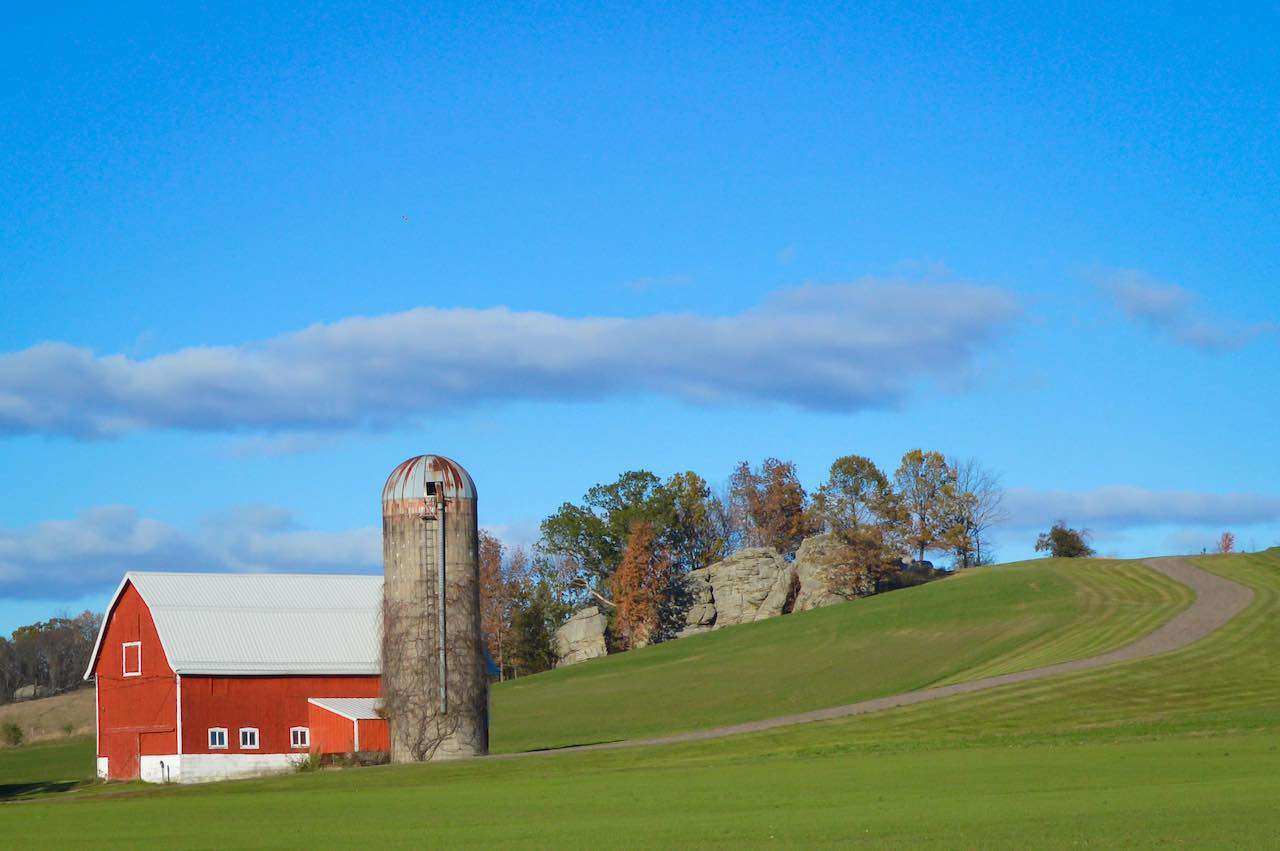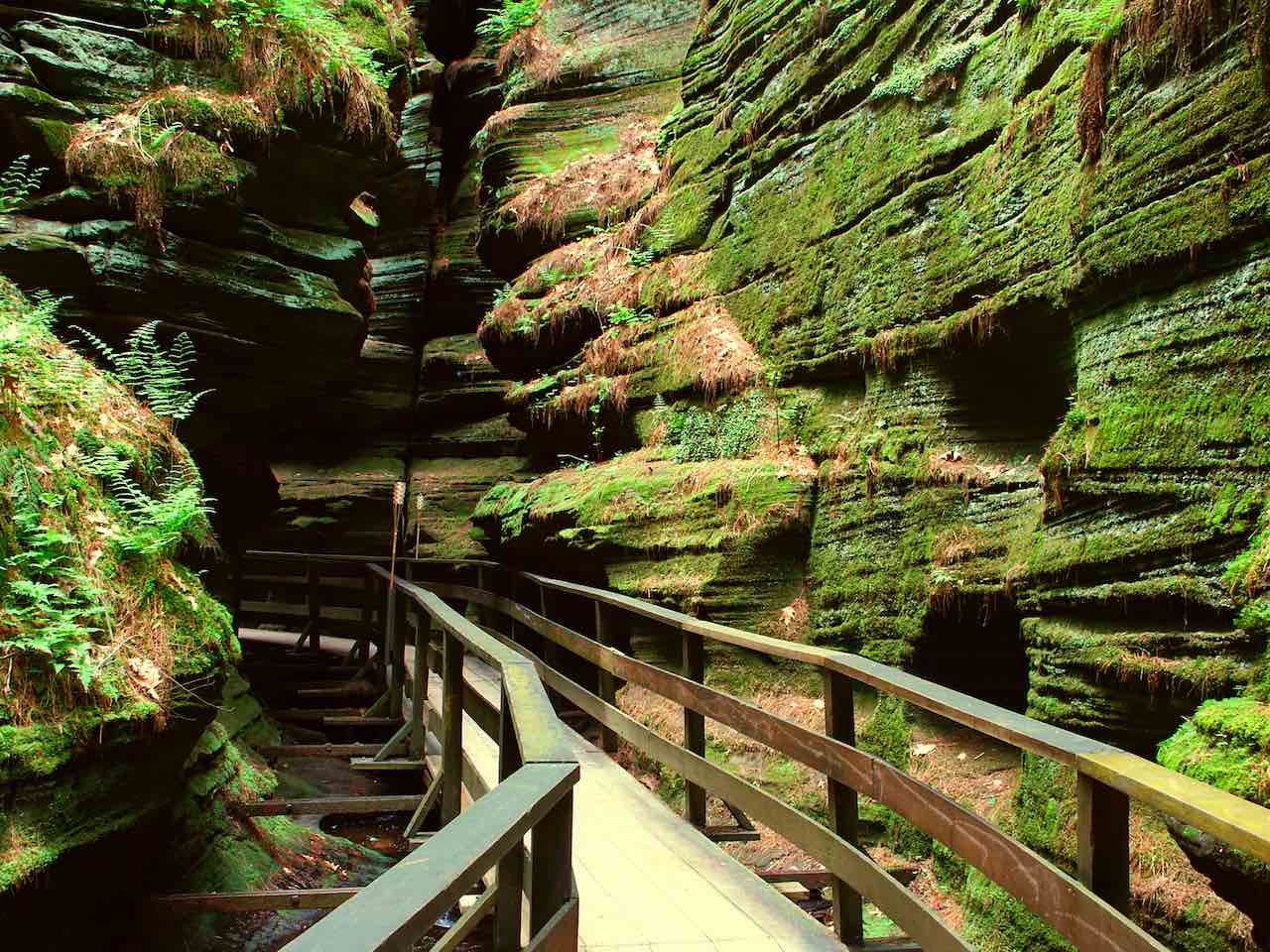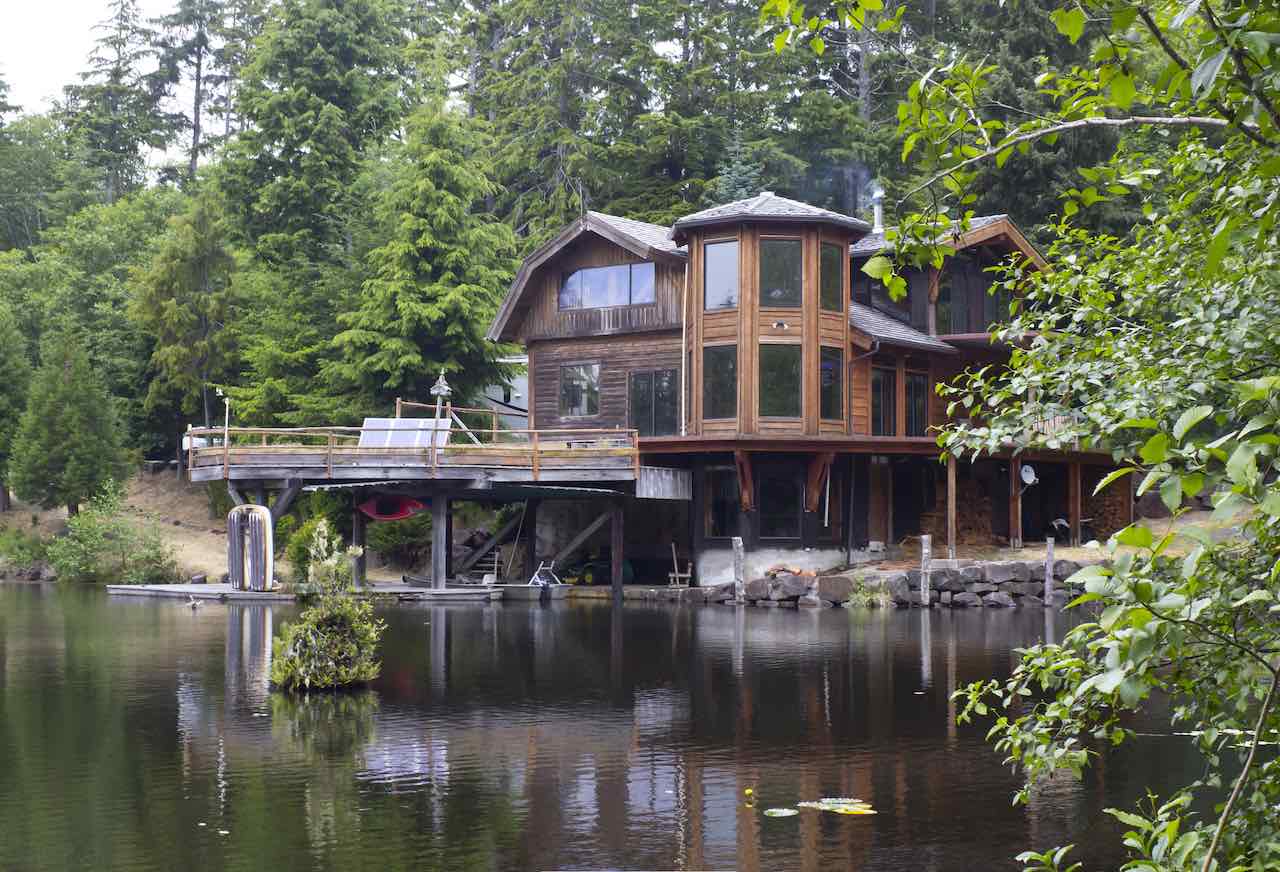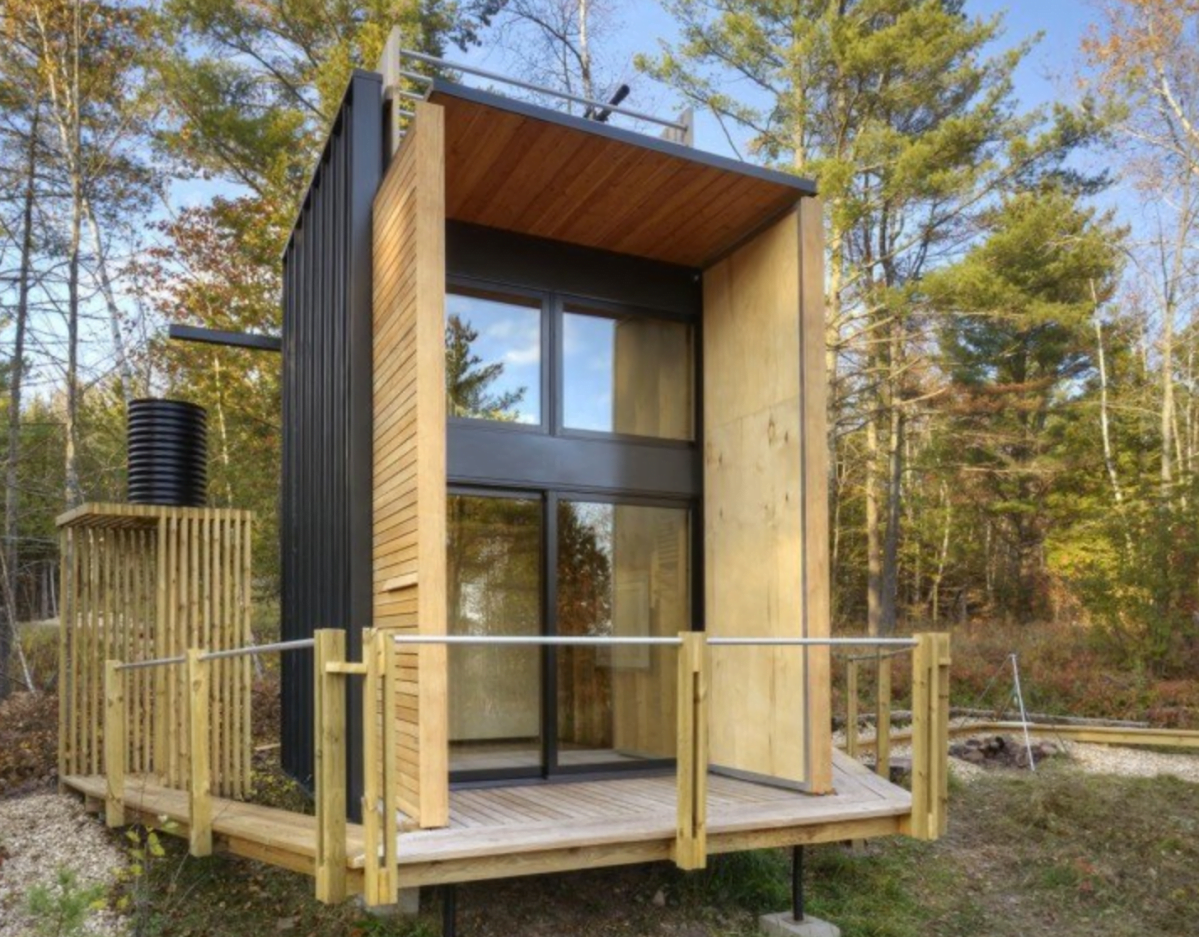If you’re looking for a place to live off the grid, Wisconsin could be the perfect state for you. With its small population and affordable land prices, it offers a great opportunity for those seeking a self-sustainable lifestyle. However, living off the grid in Wisconsin does come with its challenges. The state’s cold winters and high property taxes can be tough to navigate, but the rewards of living off the land and generating your own power through solar panels and wind turbines can make it all worthwhile. With an abundance of freshwater and opportunities for agriculture, Wisconsin provides the perfect environment for growing crops like potatoes and cranberries. Just be prepared for the state’s humid continental climate and the occasional encounter with the local wildlife. Despite the challenges, the lower cost of living, low crime rate, and job opportunities in industries such as agriculture, IT, manufacturing, and tourism make Wisconsin an attractive destination for those looking to live off the grid.

Challenges of Living Off the Grid in Wisconsin
High Property Taxes
One of the challenges of living off the grid in Wisconsin is the high property taxes. While the state offers affordable land prices, the property taxes can be quite steep. These taxes can put a strain on your budget, especially if you are living on a fixed income. It is important to take this into consideration when planning your off-grid lifestyle and budget accordingly.
Cold Winters
Wisconsin is known for its cold winters, and this can pose a challenge for off-grid living. Cold temperatures can make it difficult to keep your off-grid home warm and comfortable. You will need to invest in insulation, heating systems, and other means of staying warm during the winter months. It is important to be prepared for the harsh winter climate and ensure that your off-grid home is well-equipped to handle the cold.
Humid Continental Climate
Wisconsin has a humid continental climate, which means that it experiences hot summers and cold winters. The humidity levels can be quite high throughout the year, which can lead to moisture-related issues in your off-grid home. You will need to take steps to prevent mold and mildew growth, as well as ensure proper ventilation in your living space. This can add an extra challenge to off-grid living in Wisconsin.
Winter Weather Conditions
Winter weather conditions in Wisconsin can be quite extreme. Heavy snowfall, blizzards, and ice storms are common during the winter months. These weather conditions can make it difficult to travel and can also pose a risk to your off-grid property. You will need to be prepared for these conditions and have the necessary equipment and supplies to handle winter weather emergencies.
Natural Disasters
Wisconsin is prone to natural disasters such as floods, storms, blizzards, and wildfires. These disasters can pose a significant risk to off-grid living, as they can cause damage to your property and disrupt your off-grid systems. It is important to have a disaster preparedness plan in place and ensure that your off-grid home is built to withstand these types of events.
Opportunities for Living Off the Grid in Wisconsin
Affordable Land Prices
One of the opportunities for living off the grid in Wisconsin is the affordable land prices. The state has a small population and plenty of available land, making it an attractive option for those looking to live off the grid. The lower cost of land can help offset some of the challenges, such as high property taxes, and make off-grid living more affordable and accessible.
Power Generation with Solar Panels and Wind Turbines
Wisconsin offers opportunities for generating power with renewable energy sources such as solar panels and wind turbines. The state receives plenty of sunlight and wind, making it an ideal location for harnessing clean energy. By installing solar panels or wind turbines, you can generate your own electricity and reduce your reliance on the grid.
Tax Incentives
Wisconsin provides tax incentives for those who invest in renewable energy systems. This can include a reduction in property taxes or tax credits for installing solar panels or wind turbines. These incentives can help offset the initial costs of setting up your off-grid power generation system and make it more financially feasible.
Abundant Freshwater Availability
Wisconsin is known for its abundant freshwater resources, with over 15,000 lakes and 43,000 miles of rivers and streams. This makes it an excellent location for off-grid living, as you can easily access a clean and sustainable water source. You can install rainwater harvesting systems or use water filtration methods to ensure a constant and reliable water supply.
Tiny Houses Legal with Size Requirements
Tiny houses are legal in Wisconsin, with certain size requirements. This provides an opportunity for off-grid living, as tiny houses are an affordable and sustainable housing option. By building a tiny house, you can minimize your environmental impact and live a minimalist lifestyle. It is important to research and comply with the size requirements and any zoning regulations in your desired location.

Climate and Environmental Factors
Humid Continental Climate
Wisconsin has a humid continental climate, characterized by hot summers and cold winters. This climate type is influenced by its proximity to the Great Lakes and the prevalence of high humidity throughout the year. It is important to take this into consideration when planning your off-grid lifestyle, as it can affect your comfort levels and the maintenance of your off-grid systems.
Hot Summers and Cold Winters
The summers in Wisconsin can be hot and humid, with temperatures reaching into the 90s°F (30s°C). You will need to have adequate ventilation and cooling systems in place to stay comfortable during the summer months. On the other hand, winters can be extremely cold, with temperatures dropping below freezing and heavy snowfall. Proper insulation and heating systems are essential to keep your off-grid home warm during the winter season.
High Humidity
Wisconsin experiences high humidity levels throughout the year, which can pose challenges for off-grid living. High humidity can lead to mold and mildew growth, as well as affect the performance of certain off-grid systems. Proper ventilation and moisture control measures are necessary to maintain a healthy and comfortable living environment.
Abundance of Freshwater
One of the advantages of living off the grid in Wisconsin is the abundance of freshwater resources. With thousands of lakes and rivers in the state, you can easily access clean and sustainable water sources. This is especially important for off-grid living, as you will need a reliable and safe water supply for drinking, cooking, and other daily needs.
Natural Disasters
Wisconsin is prone to various natural disasters, including floods, storms, blizzards, and wildfires. These disasters can pose risks to off-grid living, as they can cause damage to your property and disrupt your off-grid systems. It is important to be prepared for these events and have a plan in place to ensure the safety and resilience of your off-grid home.
Agriculture and Wildlife in Wisconsin
Main Crops: Potatoes and Cranberries
Agriculture plays a significant role in Wisconsin’s economy, with potatoes and cranberries being the main crops grown in the state. If you are interested in off-grid living and self-sufficiency, you can consider growing your own food and cultivating crops such as potatoes and cranberries. Wisconsin’s fertile soil and favorable growing conditions make it an ideal location for small-scale farming.
Abundance of Wildlife
Wisconsin is home to a diverse range of wildlife, providing opportunities for hunting, fishing, and observing nature. Living off the grid in Wisconsin allows you to be closer to nature and enjoy the abundant wildlife in the state. Deer, rabbits, and various types of fish are common wildlife species that you may encounter while living off the grid in Wisconsin.
Deer
Deer are a common sight in Wisconsin, and hunting deer is a popular activity for both recreational and subsistence purposes. If you are interested in hunting for food, living off the grid in Wisconsin can provide ample opportunities for deer hunting. However, it is important to familiarize yourself with the local hunting regulations and practice ethical and responsible hunting practices.
Rabbits
Rabbits are another common wildlife species in Wisconsin, and they provide a source of food for those living off the grid. Rabbit hunting is a popular activity in the state, and their meat can be a valuable addition to your off-grid diet. It is important to ensure that you have the necessary hunting licenses and follow the local hunting regulations.
Various Types of Fish
With its thousands of lakes and rivers, Wisconsin offers excellent fishing opportunities. You can catch various types of fish, including bass, walleye, trout, and panfish. Fishing can provide a sustainable source of food for off-grid living and allow you to connect with nature. Make sure to obtain the appropriate fishing licenses and follow the fishing regulations in your desired location.

Living Costs and Property Taxes
Lower Cost of Living than National Average
One of the advantages of living off the grid in Wisconsin is the lower cost of living compared to the national average. The state offers affordable land prices and lower overall expenses, which can help offset some of the challenges associated with off-grid living. However, it is important to carefully plan your off-grid lifestyle and budget to ensure that you can comfortably afford your living expenses.
High Property Taxes
While the cost of living in Wisconsin may be lower than the national average, the state does have high property taxes. This can be a challenge for those living off the grid, as property taxes can significantly impact your budget. It is important to factor in these taxes when planning your off-grid lifestyle and explore ways to offset or minimize the financial burden, such as through tax incentives or exemptions.
Unemployment Rate
Wisconsin has a relatively low unemployment rate compared to the national average. This can be advantageous for those looking to live off the grid, as finding employment opportunities may be easier in the state. However, it is important to consider your income sources and ensure that you have a stable and sustainable source of income to support your off-grid lifestyle.
Industries in Wisconsin
Wisconsin has a diverse economy with several industries, including agriculture, information technology, manufacturing, and tourism. Depending on your skills and interests, you may find employment or business opportunities in these industries. Additionally, these industries can provide potential collaboration and support for off-grid living, such as sourcing local produce, partnering with renewable energy companies, or providing services to tourists.
Tourism
Tourism is a significant industry in Wisconsin, attracting visitors from around the country and the world. Living off the grid in Wisconsin can provide opportunities to tap into the tourism industry, whether through offering eco-friendly accommodations, organizing outdoor activities, or providing unique experiences for visitors. However, it is important to consider the impact of tourism on the environment and to ensure sustainable practices in your off-grid lifestyle.
Legal Considerations for Off-Grid Living in Wisconsin
Off-Grid Living Legal in Wisconsin
Living off the grid is legal in Wisconsin, allowing individuals to disconnect from public utilities and rely on self-sustaining systems. The state recognizes the importance of personal freedom and encourages sustainable living practices. However, it is important to familiarize yourself with the laws and regulations surrounding off-grid living, as there may be specific requirements or restrictions in different areas.
Tiny Houses Legal with Size Requirements
Tiny houses are legal in Wisconsin, but there are certain size requirements that must be met. These requirements may vary depending on the municipality or county regulations. It is important to research and comply with these size requirements when planning to build a tiny house for off-grid living. This can provide an affordable and sustainable housing option for those looking to live off the grid in Wisconsin.
Restrictions in Other Areas
While off-grid living is legal in Wisconsin, it is important to note that there may be restrictions in other areas, such as private communities or homeowner associations. These restrictions may limit your ability to disconnect from public utilities or impose specific requirements for off-grid living. It is important to research and understand any restrictions or limitations before choosing a location for your off-grid lifestyle.

Benefits of Off-Grid Living in Wisconsin
Self-Sufficiency
One of the major benefits of off-grid living in Wisconsin is the opportunity for self-sufficiency. By disconnecting from public utilities and relying on your own renewable energy systems, you can become less dependent on external resources. This can provide a sense of empowerment and freedom, as you have control over your own energy and resource consumption.
Reduced Environmental Impact
Living off the grid in Wisconsin allows you to reduce your environmental impact. By generating your own energy from renewable sources, you can reduce your carbon footprint and contribute to a more sustainable future. Additionally, off-grid living promotes conservation and mindful resource consumption, which can help protect the natural beauty and resources of Wisconsin.
Lower Cost of Living
Off-grid living in Wisconsin can offer a lower cost of living compared to traditional grid-connected lifestyles. With affordable land prices, reduced utility bills, and the ability to grow your own food, you can significantly decrease your monthly expenses. This can provide financial freedom and allow you to live a more frugal and fulfilling lifestyle.
Risks and Precautions for Off-Grid Living in Wisconsin
Lack of Amenities
Living off the grid in Wisconsin may mean sacrificing some modern amenities and conveniences. This can include limited access to water and sewer systems, unreliable internet or phone service, and limited transportation options. It is important to be prepared for these challenges and explore alternative solutions, such as installing off-grid water and wastewater systems or utilizing satellite internet services.
Limited Access to Emergency Services
Living off the grid in remote areas of Wisconsin can result in limited access to emergency services. In case of medical emergencies or other urgent situations, it may take longer for help to arrive. It is important to have a plan in place and be prepared to handle emergencies on your own, including having first aid kits, emergency supplies, and knowledge of basic medical procedures.
Dependence on Renewable Energy Sources
Off-grid living relies heavily on renewable energy sources such as solar panels and wind turbines. While these systems can provide a sustainable and reliable source of energy, they are not without their limitations. Energy generation may fluctuate with weather conditions, and system maintenance and repairs may be required. It is important to understand the capabilities and limitations of your renewable energy systems and have backup plans in place for periods of low energy generation.
Maintenance Challenges
Off-grid living in Wisconsin can present maintenance challenges, especially in harsh winter conditions. Snow removal, equipment maintenance, and general upkeep of your off-grid systems can require additional effort and resources. It is important to be prepared for these challenges and have the necessary tools and knowledge to handle maintenance tasks on your own.
Social Isolation
Living off the grid in remote areas of Wisconsin can result in social isolation. Limited neighbors and distance from urban areas can make it difficult to connect with others and find social interaction. It is important to be proactive in seeking social opportunities, such as joining local community organizations, participating in outdoor activities, or attending events in nearby towns.

Conclusion
Living off the grid in Wisconsin offers both challenges and opportunities. High property taxes, cold winters, and a humid continental climate can present obstacles to off-grid living. However, affordable land prices, power generation with renewable energy, tax incentives, and abundant freshwater availability provide opportunities for those seeking to live off the grid. It is important to consider the climate and environmental factors, as well as the agriculture and wildlife in Wisconsin, when planning your off-grid lifestyle. Understanding the living costs and property taxes, as well as the legal considerations, can help you make informed decisions. While off-grid living offers benefits such as self-sufficiency, reduced environmental impact, and a lower cost of living, there are also risks and precautions to consider, including lack of amenities, limited access to emergency services, dependence on renewable energy, maintenance challenges, and potential social isolation. By weighing the pros and cons, and taking necessary precautions, you can embark on an off-grid lifestyle in Wisconsin that suits your needs and values.




